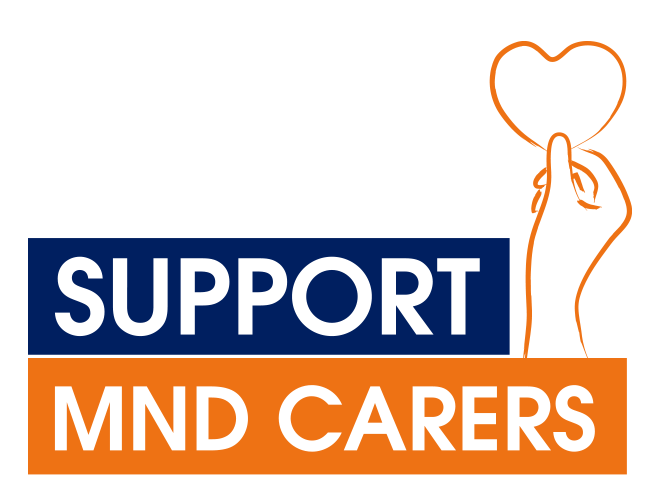Unpaid carers of people living with MND provide essential support, helping their loved ones maintain a better quality of life while easing the burden on health and social care services.
The financial support they receive does not reflect the contribution they make and too many are excluded from support at all. Our Support MND Carers campaign aims to change that.
The MND Carer Triple Burden: Rising Costs, Falling Earnings and Benefits Shortfalls
Carers are increasingly facing financial hardship, made worse by the ongoing cost of living crisis. Our latest report, The MND Carer Triple Burden: Rising Costs, Falling Earnings and Benefits Shortfalls, highlights the serious financial challenges faced by MND carers and calls for immediate action.
Read the report: The MND Carer Triple Burden
The report focuses on three key areas:
- Rising costs: 68% of carers have had to make significant changes to their budgets to cover disability-related expenses. Many families are depleting their savings, with 64% having used over £2,000 in the past year alone. Additionally, one-fifth (22%) of respondents reported being in debt or having gone into debt to meet these rising costs.
- Falling earnings: One in five carers (21%) have had to reduce their work hours, while 36% have left full-time employment entirely to fulfil their caring responsibilities. This has had a profound impact on household income, with 58% of carers reporting that current carer-related benefits fail to make up for the lost earnings.
- Benefits shortfalls: Almost all carers surveyed (94%) believe that the current Carer's Allowance of £81.90 per week is inadequate, with over half stating they need at least £200 per week to meet their needs. Additionally, many carers are excluded from this support due to restrictive eligibility criteria, such as earnings thresholds and age limits.
In light of these findings, we are urging the Government to reform the welfare system, particularly Carer’s Allowance, to better meet the needs of unpaid carers. Our policy recommendations include:
- Adjust eligibility: Remove age limits and simplify earnings rules to make it easier for more carers to qualify for support.
- Increase Carer’s Allowance: Raise the allowance to reflect the true value of the support unpaid carers provide.
- Simplify the system: Make the application process for Carer’s Allowance easier to navigate and reduce the risk of overpayments.
The full report, The MND Carer Triple Burden: Rising Costs, Falling Earnings and Benefits Shortfalls, provides comprehensive insights into these challenges and outlines the steps needed to support carers more effectively. A detailed briefing document is also available for further information.
Supporting carers
Carer's Allowance
The Government should address strict eligibility requirements by removing the earning and age thresholds, reducing the minimum time-spent-caring condition, and removing the limited eligibility rules if a person is cared for by more than one person.
There are thousands of unpaid carers of people with MND, and many of them face financial hardship because of their caring role:
- 47% of unpaid carers report worrying about money.
- Almost half (49%) report that caring had caused them financial difficulty.
Increasing the rate of Carer's Allowance would make a huge difference to these unpaid carers.
Read more in our 2022 report here.
Carer's Assessments
We’re also calling on local authorities to do more to support MND carers. One way they can do this is through improving carer’s assessments*.
Assessments are the front door to the support that are available for unpaid carers. They help to identify what carers need, so that they can be offered the appropriate services and assistance to continue in their caring role.
It is not acceptable that countless carers across the UK have not received a carer’s assessment, leaving them without access to vital support.
Carers’ assessments are a legal right but research from the MND Association has found too many unpaid carers are not even aware of them - or have found them inadequate.
On Carer’s Rights Day we launched our latest findings in the State of Carer’s Assessments 2023 report. If you’d like an accessible version of the report, please email us.
The report reveals many local authorities are unaware of who is an unpaid carer in their area, with almost one-third not holding a register of carers. We estimate that councils are only identifying between 6-13% of carers in their local area. Without understanding how many carers there are in their areas, they will not be able to put in place effective support for those that need it.
More from the State of Carer's Assessments Report
In our report we also detail the long wait for a carer’s assessment. Between 2018 and 2023, people waited on average between 42 and 47 days for a carer’s assessment to be carried out once it was requested. For a disease like MND, where needs can change dramatically over a short period, this is too long.
But in some places, it’s even worse, with people in some local council areas waiting over a year to receive an assessment. This postcode lottery for MND carers is unacceptable.
Finally, the report shines a light on where best practice isn’t being delivered for people with MND:
- 71% of local authorities do not routinely reassess carers of people with severe progressive diseases like MND – reassessments ensure that the level of support can change with their needs.
- 82% of local authorities do not have fast-track routes to assessment in place to account for the progressive and fast-changing nature of MND symptoms.
- 85% of local authorities do not have ringfenced budgets for carers’ assessments which would ensure guaranteed funding for these assessments.
Support and Information
If you are a carer or support someone living with MND, you can access help as care needs increase. Find out more about support and information available to you
Mary's Story
Mary is a carer for her older brother, Gary, who is living with MND. Mary juggles being a secondary school teacher with caring responsibilities.
"It was difficult to digest and accept the diagnosis. I found it difficult to reorganise my life between being a carer, a mother and working full-time as a teacher. At one point I was so overwhelmed that I broke down at work, unable to accept what is happening to my family. My life now is controlled by MND."
Mary
Mary has not been offered a Carer's Assessment.
"There’s no one coming into check if there’s anything that’s needed, it’s all on me to do that. I’m running around doing everything. You have to have so much patience. I’m all alone, there’s no one near to take over from me when I need help."
Mary
Get involved
Everyone caring for people with MND should be properly supported for the care that they provide. Help us make that a reality by getting involved.
Show your support for the campaign on social media
Change your Facebook header image
Change your Twitter header image
Past work on Support MND Carers
November 2022 - September 2023
We launched the Support MND Carers campaign in November 2022. We worked with hundreds of you to call on the Government to launch a review into why carers aren’t being assessed; and why, when they are assessed, recommendations from the assessment are not being carried out.
The Government included provisions in the Health and Care Act 2022 for the Care Quality Commission (CQC) to assess the performance of local authorities’ delivery of their adult social care duties – including carer’s assessments. We understand that these assessments will happen piecemeal over a number of years from September 2023 and can now consider how best we can engage with this process or its outcomes.
*Carer’s assessments cover topics such as carers’ mental and physical health, their ability and willingness to care, and their relationships with others. They are the responsibility of local authorities in England, Wales and Scotland, and of Health and Social Care Trusts in Northern Ireland.
The Care Act 2014 in England gives anyone aged 18 years and over - who is looking after another adult who is disabled, ill or elderly - the right to a carer’s assessment. In Northern Ireland, the Carers and Direct Payments Act (Northern Ireland) 2002 gives carers the right to an assessment. In Wales, the right to a carers assessment is provided through the Social Services & Well-being (Wales) Act 2014. In Scotland, it is provided through the The Carers (Scotland) Act 2016.




